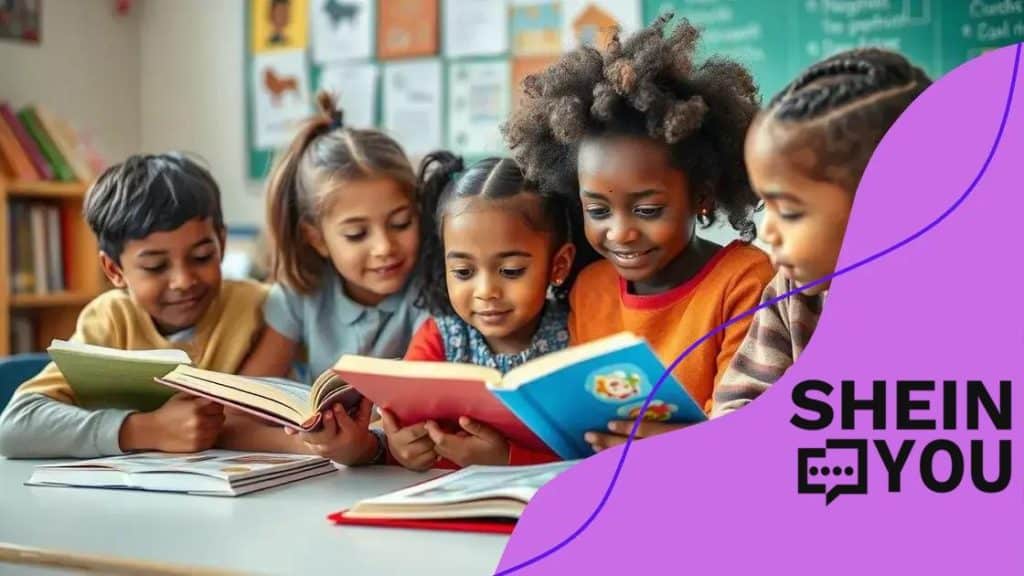Benefits of learning a second language at a young age

Anúncios
The benefits of learning a second language at a young age include improved cognitive skills, enhanced academic performance, better social abilities, and increased career opportunities throughout life.
Benefits of learning a second language at a young age are immense, shaping how children think and interact. Have you noticed how kids pick up new languages faster than adults? Let’s dive into why that is and what it means for their future.
Anúncios
Cognitive benefits of bilingualism
Learning a second language offers numerous cognitive benefits that can significantly enhance a child’s development. These advantages start early and can last a lifetime. Kids who learn a second language show improved problem-solving skills and creativity.
Enhanced Memory Skills
One notable cognitive benefit is the enhancement of memory skills. Bilingual children are better at remembering information compared to those who speak only one language. This is because learning a new language exercises the brain and strengthens connections.
Better Focus and Multitasking
Another key advantage is the ability to focus and multitask. Bilingual individuals can switch between languages, which requires concentration and mental agility. As a result, they often develop superior attention spans.
Anúncios
Furthermore, studies show that bilingual children perform better on tasks that require cognitive control. They learn to prioritize and manage different tasks efficiently. This skill contributes to academic success as they navigate various subjects.
In addition, learning a second language can boost critical thinking skills. Bilingual kids tend to analyze and evaluate situations better because they are used to thinking in different contexts. This experience enhances their reasoning abilities.
Cultural awareness through language learning

Learning a second language provides profound cultural awareness that enriches a child’s understanding of the world. When children study different languages, they encounter new perspectives and traditions.
Understanding Different Cultures
Cultural awareness begins with learning about the people who speak that language. Children become familiar with customs, values, and beliefs that may be different from their own. This process helps them to appreciate diversity and fosters empathy.
Building Bridges Across Communities
Moreover, acquiring a second language helps children connect with others in their community. It allows them to communicate effectively with friends and neighbors from diverse backgrounds. These connections are valuable for building friendships and promoting inclusivity.
As they learn to communicate, children develop an appreciation for how languages shape identities. They begin to realize that language is more than just words; it reflects history and cultural nuances. This insight can lead to lifelong curiosity about different cultures.
Additionally, understanding different cultures through language can lead to enhanced global citizenship. Bilingual children are often more aware of global issues and are better prepared to contribute positively to society.
Social skills and interactions
Learning a second language not only enriches a child’s mind but also significantly enhances their social skills and interactions. As children engage in language learning, they practice communication, which is essential for building relationships.
Improved Communication Skills
When children learn a new language, they become more effective communicators. They learn to express their thoughts and feelings clearly, which increases their confidence in social situations. This improvement leads to better friendships and connections with others.
Increased Empathy and Understanding
Additonally, bilingual children often develop greater empathy. They understand that different cultures have unique ways of expressing emotions and ideas. This awareness helps them to connect with others on a deeper level.
As these children navigate different social environments, they gain valuable skills in adapting their communication style. This adaptability prepares them for various situations, fostering friendships across cultures.
Moreover, language learning encourages teamwork and collaboration. Group activities that involve multiple languages often require cooperation, teaching children how to work effectively with others.
Impact on academic performance

Learning a second language has a remarkable impact on academic performance for children. Studies have shown that bilingual students often outperform their monolingual peers in various subjects.
Enhanced Cognitive Abilities
The process of learning a new language stimulates the brain, leading to better cognitive abilities. Bilingual children develop stronger analytical skills, which helps them in subjects like math and science.
Higher Academic Achievement
Research indicates that children who learn additional languages tend to achieve higher test scores. They often show improved performance in reading and writing as well. This is because language skills are interconnected across different subjects.
Moreover, bilingualism encourages a greater love for learning. Children who learn a second language often find connections between languages and other academic areas, enhancing their overall educational experience.
As they master a new language, they gain confidence in their academic abilities. This confidence translates to active participation in class, leading to even further academic success.
Long-term advantages in career opportunities
Learning a second language opens up long-term advantages in career opportunities for children. As they grow up, bilingual individuals often find themselves with a competitive edge in the job market.
Increased Job Prospects
Employers highly value candidates who can speak multiple languages. In many fields, such as business, health care, and education, being bilingual is a significant advantage. Companies look for employees who can communicate with diverse clients and partners.
Higher Earning Potential
Bilingual individuals often enjoy higher salaries compared to their monolingual peers. Research shows that knowing a second language can lead to better job positions and increased wages. This financial benefit is an attractive reason to encourage children to learn languages.
Moreover, bilingualism fosters adaptability, a quality that is crucial in today’s fast-paced work environments. As languages change and evolve, individuals who speak multiple languages learn to adjust their communication styles to fit various contexts.
This adaptability not only benefits career advancement but also enhances personal growth. Bilingual individuals are usually more culturally aware and emotionally intelligent, which contributes positively to team dynamics in the workplace.
In conclusion, the benefits of learning a second language at a young age are extensive and far-reaching. Children not only gain cognitive skills and enhance their academic performance but also develop social abilities and cultural awareness. These advantages set a strong foundation for their future career opportunities and personal growth. Encouraging young learners to embrace a second language can lead to a more enriching and fulfilling life.
FAQ – Frequently Asked Questions about the Benefits of Learning a Second Language
What are the cognitive benefits of learning a second language?
Learning a second language enhances memory, critical thinking, and problem-solving skills, making children more effective learners.
How does bilingualism affect social skills?
Bilingual children often have improved communication skills, greater empathy, and develop better relationships with peers from diverse backgrounds.
Can learning a second language impact academic performance?
Yes, studies show that bilingual students often achieve higher test scores and perform better in subjects like reading and writing.
What long-term career advantages can come from being bilingual?
Bilingual individuals often have more job opportunities, higher earning potential, and are valued by employers for their ability to communicate with diverse populations.





